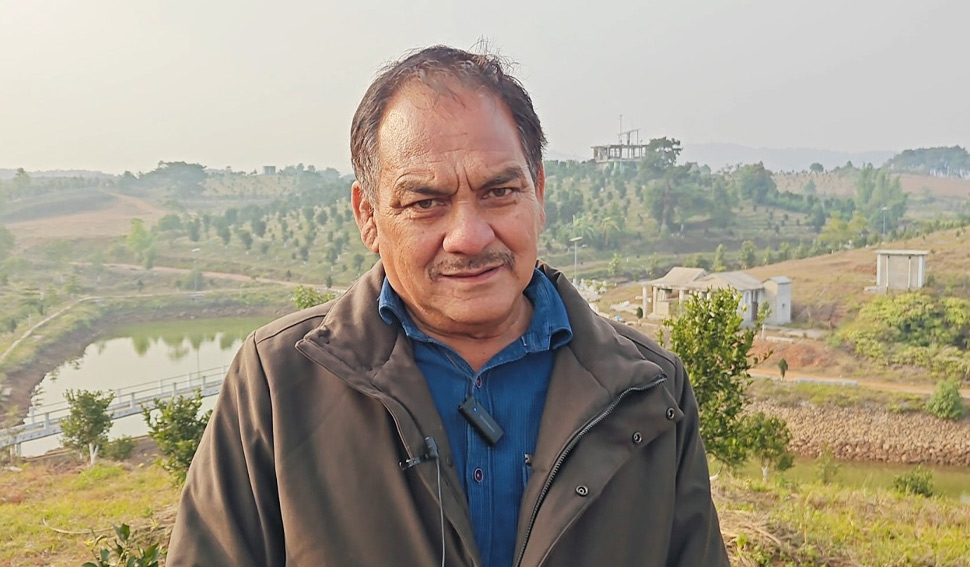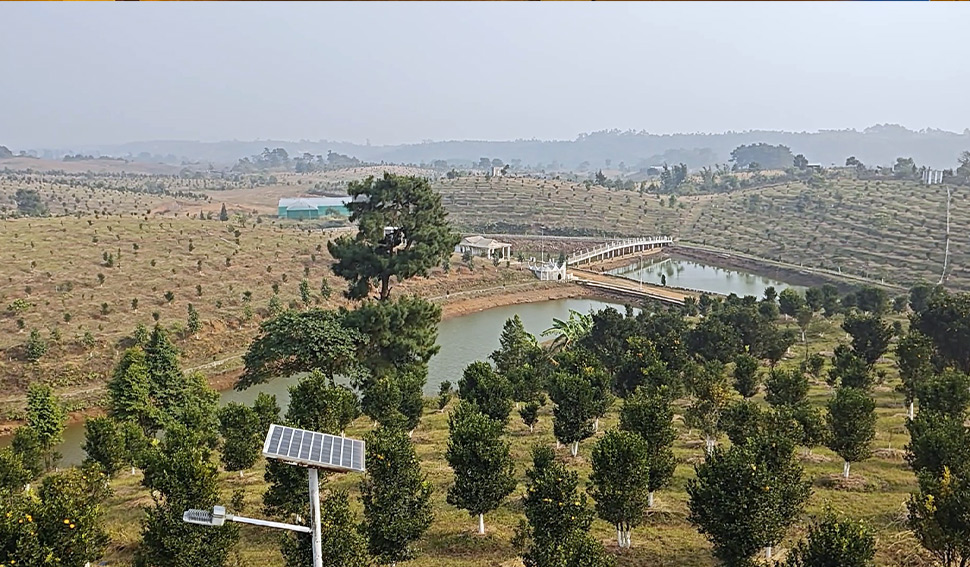From coal mines to Khasi mandarin orchards: PMKSY’s green revolution in Meghalaya

The “Per Drop More Crop” (PDMC) scheme under the Pradhan Mantri Krishi Sinchayee Yojana (PMKSY) has brought remarkable transformation to East Jaintia Hills District, Meghalaya. A once-active coal mines has been turned into a thriving Khasi Mandarin orchard, demonstrating the scheme’s potential for sustainable agriculture and environmental rejuvenation.
Self Denial Lyngdoh, once a coal trader, converted his 35.05-hectare land into a sustainable agricultural venture following the coal mining ban in 2014. Over time, he planted around 20,000 Khasi Mandarin trees, adopting expert advice to grow them alongside other fruit trees, enhancing biodiversity and productivity. The farm also includes fish ponds that contribute to ecological balance and serve as an additional income source. A small team of workers manages weeding, maintenance, and daily operations.
On December 6, reporters visited the orchard as part of a press tour organized by the Directorate of Information & Public Relations, Meghalaya. Officials from the Horticulture and Water Resources Departments were also present to provide insights into the project’s success.
R Tongper, Junior Engineer of the Water Resources Department, highlighted the role of the Madan Mookhlot Minor Irrigation Project. “This project, funded under PMKSY-PDMC 2018–2019 at a cost of Rs 42.45 lakh, started in 2020 and was completed in 2023,” Tongper said. “It includes nine water collection tanks, a 1.14 km pipeline, diesel and solar-powered water pumps, and a 20-meter-high RC Cool Wall for water storage. This infrastructure ensures a consistent water supply to the orchard, crucial for its sustainability.”
The Horticulture Department has been instrumental in Lyngdoh’s success. “We provided saplings, fertilizers, pesticides, and technical guidance to enhance agricultural practices,” shared DB Dhar, District Horticulture Officer. “The integration of expert resources has ensured high productivity and the overall growth of the orchard.”

Lyngdoh’s agricultural journey began in 2015 with 2,000–3,000 saplings and has grown to a large-scale operation featuring 20,000 trees, along with other fruit varieties. The farm also exports Khasi Mandarins to Bangladesh and markets them across Meghalaya and other parts of India, boosting local and regional economies.
This transformation of a coal mining site into a lush, sustainable orchard highlights the success of PMKSY in fostering economic growth, sustainable livelihoods, and environmental restoration. It serves as a model for regions affected by industrial activity to explore sustainable agricultural practices as a pathway to development.

Leave a Reply